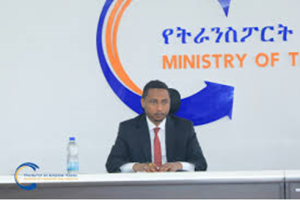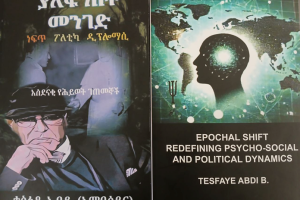
Noble Peace Prize winner, Prime Minister Dr. Abiy Ahmed and high level government delegation recently attended two state formation negotiations between Somaliland and the Federal Republic of Somalia in Djibouti. Speaking on the occasion, the Prime Minister stressed on the need for sustained peace for the development of countries in the Horn of Africa.
Horn of Africa denotes the region containing the countries of Djibouti, Eritrea, Ethiopia, Somalia and Somaliland which is yet to be recognized by the international community. Historically, Greater Horn of Africa also includes The Republic of Sudan, South Sudan and Egypt.
Ever since the advent of the Berlin Conference and the opening of the Suez Canal, the region has always been a bone of contention between rival European colonial powers over the previous century. In terms of geo-physical dimensions, the Horn includes the highest mountain peaks in Ethiopia (Ras Dashen) and the lowest point in the world (The Kobar Sink or the Dalol Depression).
The region is endowed with hitherto unfat-homed natural resources like majestic rivers like the Nile River which bisects northern Ethiopia and a number of mineral resources that have so far not been exploited.
The diversity of cultures in the region with heterogeneous populations and archeological findings that make the region the origin of mankind has never enjoyed a lasting peace. Wars over scares resources in semi-arid ecologies in the region, ethnic based conflicts, colonial irredentism and invasion has not only jeopardized the peace and tranquility in the area but has also subjected the entire population of the region to untold poverty and drought induced destitution.
Over the last hundred years and more recently over the past several decades, the war between Ethiopia and the liberation movements in Eretria, the Ethio-Somali wars, periodic fighting between Eretria and Ethiopia as well as Djibouti, colonial invasion by the Italians and the British colonizers in the mid-90th century has complicated the statehood and stability in the region which served as a cross road for global trade in petroleum.
Coupled with the state of wars in the region, recurrent climate change induced drought, illegal migration and conflict triggered internal displacement and influx of refugees, terrorism and sea piracy has continued to subject the region to multiple sets of political, economic and social crisis Somalia and Somaliland were severely affected by these events.
While Ethiopia and Eretria plunged themselves into a regrettable war two decades ago in which more than 90,000 servicemen and women have perished from both sides, Somalia became a hallmark of terrorist organizations that destroyed the socio-economic fabric of the country and forced the population to flee their own country. Poverty, lack of sustained peace, epidemics added more fuel to the already raging abject poverty and destitution.
As part of his program to ascertain regional cooperation in mutual development, economic integration and people to people relations and promotion of peace in the Horn, only a couple of days after his inauguration, the Prime Minister made a working trip to Djibouti, Kenya, Sudan and Somalia. On these trips, the premier focused on regional peace as a major precondition for mutual economic development in the area. Even if there was a change of government in the country, Ethiopia’s commitment to peace and development on in the Horn remained intact.
A major breakthrough in relations between Ethiopia and Eretria was heralded on the occasion of the historic visit made by Prime Minister Abiy Ahmed, to Asmera, during 8-9 July 2018, Eritrea and Ethiopia have signed a Joint Declaration of Peace and Friendship. The Joint Declaration puts an end to the state of war between Ethiopia and Eritrea and commits the two countries to forge close political, social, cultural and security cooperation; resume transport, trade and communication links and diplomatic ties; implement the decision on the boundary; and endeavor to ensure regional peace, development and cooperation.
Furthermore, the leaders of Ethiopia, Somalia and Eritrea, Prime Minister Abiy Ahmed, President Mohammed Abdullahi Mahmud Farmajo and President Isaias signed a Joint Declaration on Friendship and Comprehensive Cooperation between the three countries.
The current negotiation between Somalia and Somaliland is taking place in a situation whereby COVID-19 is rapidly proliferating in the region and the damage that is inflicted by locust needs the cooperation between the negotiating parties. The current negotiation will add up to peace and cooperation in the region.
The countries of the Horn have larger natural endowments like land, water and mineral resources that they can share. A relatively close proximity of the countries is an opportunity that can foster trade through the utilization of ports, maritime and air transport services.
In their current negotiations on a two state system Somalia and Somaliland need to insure strong political commitment that could help to accelerate rapid economic development that can pull out the peoples of the two countries from various manifestations of poverty and destitution.
The Ethiopian Herald June 23, 2020
BY SOLOMON DIBABA





